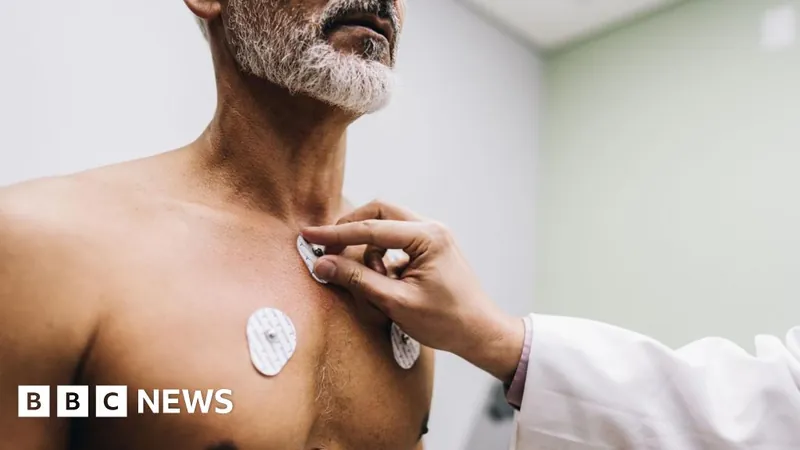
Revolutionary AI Technology May Predict Type 2 Diabetes Up to a Decade Early!
2024-12-24
Author: Sarah
Revolutionary AI Technology May Predict Type 2 Diabetes Up to a Decade Early!
In an exciting development for healthcare, two NHS hospitals in London are pioneering the use of artificial intelligence to identify patients at risk for type 2 diabetes—potentially up to ten years before the disease manifests. The Imperial College and Chelsea and Westminster Hospital NHS Foundation Trusts have initiated a groundbreaking project utilizing an AI system known as Aire-DM.
This innovative technology analyzes patients’ ECG (electrocardiogram) heart scans, looking for subtle indicators that often escape even the most experienced doctors. Early studies have shown that Aire-DM can accurately predict diabetes risk approximately 70% of the time. With additional patient information—such as age, sex, and existing health conditions like high blood pressure or obesity—the accuracy of the predictions can improve significantly.
Lead researcher Dr. Fu Siong Ng highlighted the complexity of the findings, stating, “It’s not as simple as pinpointing one specific element on the ECG. It’s about recognizing a combination of subtle changes that are difficult to detect with the naked eye.
The ECG is essential for recording the heart's electrical activity, and its interpretation can reveal potential health problems before they escalate. As part of the upcoming clinical trials set for 2025, up to 1,000 patients will have their ECG records analyzed by the AI system to assess its predictive capabilities further.
While this cutting-edge technology won't be rolled out for routine clinical use just yet, experts aim for broader implementation within the NHS, though that could take five years or more according to Dr. Ng.
The British Heart Foundation, which is funding this promising research, emphasizes that early detection of at-risk individuals can significantly reduce the chances of severe complications associated with uncontrolled type 2 diabetes, including heart attacks and strokes.
Professor Bryan Williams, Chief Scientific and Medical Officer at the British Heart Foundation, praised the research saying, “This exciting study showcases how AI can reveal hidden patterns within health data, leading to transformative ways to anticipate who might develop type 2 diabetes long before it occurs.
The rise of type 2 diabetes poses an increasing challenge to public health. However, with the right interventions—such as maintaining a healthy weight, adopting a balanced diet, and regular exercise—individuals can take proactive steps to reduce their risk. Experts are eager to see how this cutting-edge technology could be integrated into medical practice, making strides towards a future where diabetes can be predicted and prevented.
Stay tuned for what could be a game-changing advancement in the fight against one of the world’s most prevalent health crises!




 Brasil (PT)
Brasil (PT)
 Canada (EN)
Canada (EN)
 Chile (ES)
Chile (ES)
 España (ES)
España (ES)
 France (FR)
France (FR)
 Hong Kong (EN)
Hong Kong (EN)
 Italia (IT)
Italia (IT)
 日本 (JA)
日本 (JA)
 Magyarország (HU)
Magyarország (HU)
 Norge (NO)
Norge (NO)
 Polska (PL)
Polska (PL)
 Schweiz (DE)
Schweiz (DE)
 Singapore (EN)
Singapore (EN)
 Sverige (SV)
Sverige (SV)
 Suomi (FI)
Suomi (FI)
 Türkiye (TR)
Türkiye (TR)